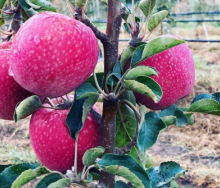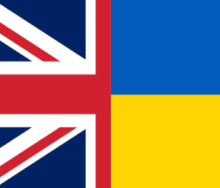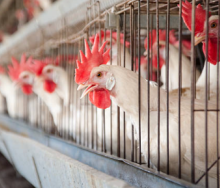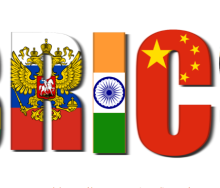The African Centre for Biodiversity (ACB) has warned that trials of genetically modified (GM) wheat in South Africa could contaminate the food supply and find its way into neighbouring importing countries.
Lobby group ACB has registered objections to plans for GM wheat field trials, which it says could lead to below-threshold contamination of wheat products in Botswana, Zimbabwe, Lesotho, Zambia, and Namibia, none of which have approved GM wheat.
ACB says the safeguarding measures proposed for the trials to prevent the GM traits from spreading into neighbouring wheat populations is “woefully inadequate”.
The trials are planned near Moorreesburg, Protem and Swellendam in the Western Cape and near Hopetown in the Northern Cape, following an application for field trials by Trigall Genetics in August. Trigall is a subsidiary of the Argentinian biotech company Bioceres, the first to develop a commercial strain of GM wheat.
According to ACB, Trigall is proposing an isolation distance of five metres, and a year-long monitoring plan, but “contamination has been a feature in previous GM wheat trials in the US, where contamination events were detected up to eight to 15 years after trials”.
“Where such contamination occurs in foodstuff containing GM wheat that is less than 5% – this being the threshold for labelling in South Africa – South Africans will not know they are consuming GM wheat and will be unable to avoid purchasing or consuming products containing the GM wheat.”
No GM wheat has yet been imported. Field trials are planned for 2025 and 2026, with Trigall planning to apply for a commercial permit in 2027.
According to ACB, approval for field trials will absolve Trigall (Bioceres) from any liability or redress that may arise from contamination of the food supply from the field trials.
South Africa is both an importer and exporter of wheat, the country’s most important grain crop after maize. It is an important source of carbohydrates, and an ingredient in a wide array of everyday food such as bread, noodles, pasta, couscous, cakes, muffins, biscuits, snack foods, puddings and sauces.
“The ACB, supported by 86 organisations from Africa and around the world, resisted the approval through the submission of a briefing, on the basis that GM wheat poses unacceptable risks to human and animal health, as well as undermining food sovereignty and nutrition security in South Africa. Such resistance fell on deaf ears.”
The South African biosafety authorities granted a commodity import approval for the GM wheat in August 2022, as food, feed, and industrial processing, “despite the absence of food safety evidence, including feeding studies”.













